Nelson Mandela: 'Education is the most powerful weapon which you can use to change the world.'
Education is the most powerful weapon which you can use to change the world.
The quote by Nelson Mandela, "Education is the most powerful weapon which you can use to change the world," holds immense significance in highlighting the transformative power of knowledge. Mandela recognizes that education holds the key to societal progress, as it empowers individuals to challenge existing norms, question their surroundings, and craft a brighter future. With education as our ally, we possess the ability to break free from the chains of ignorance and make meaningful contributions to the world.Education, in its simplest form, equips us with skills and knowledge necessary to navigate life's challenges. It enables us to read, write, reason, and comprehend complex concepts. These fundamental abilities provide us with the tools to engage with society, actively participate in conversations, and contribute our unique perspectives. Education imparts us with critical thinking capacity, helping us to decipher between right and wrong, question societal norms, and challenge unjust systems.However, to truly grasp the profound impact of education on society, let us delve into the realms of philosophy. In doing so, we come across the concept of "existentialism," introduced by prominent thinkers such as Jean-Paul Sartre and Søren Kierkegaard. Existentialism shifts our perspective from the collective to the individual, urging us to examine our existence and our role in shaping the world. How does this concept relate to education and Mandela's quote?Existentialism presents the idea that in the face of an inherently absurd and meaningless world, individuals hold the power to create their own meanings. It accentuates the importance of personal responsibility, freedom of choice, and authenticity. When we apply these principles to education, we discover that it is not merely a means to an end but a catalyst for personal growth and self-realization. Education becomes the vehicle through which we explore and shape our own personal realities.In this context, education takes on a deeper significance. It is not restricted to textbooks and exams but becomes a lifelong journey of self-discovery and personal transformation. Through education, we uncover our passions, strengthen our beliefs, and acquire the knowledge and skills necessary to contribute positively to society. It enables us to not only change the world but also change our own lives, providing a pathway to personal fulfillment and self-actualization.Furthermore, education also plays a crucial role in cultivating empathy, understanding, and compassion. As we gain knowledge about different cultures, histories, and perspectives, we cultivate a sense of global citizenship. We develop the capacity to empathize with people from diverse backgrounds, challenge prejudice and discrimination, and work towards creating a more inclusive and harmonious world. Education, therefore, serves as a bridge that connects individuals from various walks of life, fostering mutual respect and empathy.It is important to note that education alone cannot be expected to solve all of society's problems. Political, economic, and cultural barriers often complicate the process of implementing change. Nevertheless, education provides us with the tools and understanding necessary to address these challenges and find innovative solutions. It equips us with the ability to challenge the status quo, question traditional structures, and envision a better future. Through education, we can foster social change, empower marginalized communities, and strive to create a fairer and more just society.In conclusion, Nelson Mandela's quote, "Education is the most powerful weapon which you can use to change the world," encapsulates the transformative power of education. It signifies that education not only provides us with knowledge but also empowers us to challenge existing norms, question our surroundings, and reshape the world as we see fit. By embracing education in its many forms, we embark on a journey of personal growth, self-realization, and empathy. As we continually learn, adapt, and evolve, we have the ability to make meaningful contributions to society and leave a lasting impact on the world.

Nelson Mandela: 'If you talk to a man in a language he understands, that goes to his head. If you talk to him in his language, that goes to his heart.'
Nelson mandela: 'it always seems impossible until it's done.'.

Empowering Minds: The Transformative Power of Education

Education, an age-old cornerstone of human progress, stands as a beacon of hope, illuminating the path towards a brighter future. Beyond mere classrooms and textbooks, it holds the power to transform lives, societies, and even the world. As we embark on this journey to understand the transformative power of education, we’ll explore how it unlocks minds, ignites potential, and fosters a spirit of lifelong learning . From ancient scholars to modern pioneers, the profound impact of education has shaped the course of history and continues to pave the way for human advancement.
Knowledge as the Key
At the heart of the transformative power of education lies knowledge. It serves as the key that unlocks the potential within each individual, revealing the boundless opportunities that lie ahead. Education empowers people to navigate life’s challenges, make informed decisions, and contribute actively to society by equipping minds with facts, skills, and critical thinking abilities . From basic literacy to advanced specialized fields, knowledge provides the foundation upon which dreams are built, and futures are shaped.
Igniting the Spark of Curiosity
Education goes beyond transmitting information; it fuels the eternal flame of curiosity within us. Encouraging questions, exploration, and wonder, sparks the desire to learn and discover. From the child’s insatiable thirst for knowledge to the scholar’s pursuit of groundbreaking research, curiosity drives intellectual growth. Embracing curiosity, we find ourselves continuously seeking answers, unearthing new perspectives, and evolving as individuals.

Empowerment Through Lifelong Learning
The transformative power of education does not end with formal schooling. Instead, it ignites a lifelong pursuit of learning. As we recognize that knowledge is boundless and ever-evolving, we embark on a journey of continuous growth. Lifelong learning enables us to adapt to a rapidly changing world, remain relevant in our fields, and contribute to our communities despite uncertainty. Embracing a growth mindset, we become empowered to overcome challenges and embrace new opportunities throughout our lives.
Shaping Global Citizens
Education transcends borders and cultures, fostering a sense of global citizenship. By exposing individuals to diverse perspectives, languages, and cultures, education nurtures empathy and understanding. In a world where interconnectedness is more apparent than ever, education plays a crucial role in promoting peace, tolerance, and cooperation among nations. Through education, we become catalysts for positive change, breaking down barriers and building bridges of harmony.
Tackling Societal Challenges
In the face of societal challenges, education stands as a powerful tool for progress and transformation. From combating poverty and inequality to addressing environmental issues, education empowers individuals with the knowledge and skills needed to create sustainable solutions. Education generates a network of change agents dedicated to making the world a better place for all by nurturing innovators, educators, and advocates.
Empowering Diversity and Inclusion
Education serves as an equalizer, breaking down barriers and fostering inclusivity. Education empowers individuals from various backgrounds to pursue their dreams and aspirations by embracing diversity in all its forms. In inclusive learning environments, students thrive as they celebrate their unique identities, share experiences, and collaborate on projects that drive meaningful change. As education embraces diversity and inclusion, it strengthens societies, nurturing a generation of compassionate leaders championing equity and social justice.
Education for Empowerment: Stories of Impact
The transformative power of education is best illustrated through stories of real-life impact. We share tales of individuals who defied the odds, accessed education against all challenges, and emerged as change-makers. Education has uplifted lives from impoverished communities to war-torn regions, breaking the cycle of poverty and despair. These stories are a testament to the enduring power of education, inspiring future generations to embrace its potential for personal growth and societal transformation.
Read more : Education Revolutionized: Embracing Innovative Approaches To Learning
Education’s Role in Personal Development
Education is not solely about acquiring academic knowledge; it also plays a pivotal role in personal development. Through the education journey, individuals learn valuable life skills such as time management, problem-solving, communication, and teamwork. These skills extend beyond the classroom, shaping individuals into well-rounded and confident individuals. Moreover, education fosters a sense of self-awareness, helping students discover their passions, strengths, and areas of improvement. As individuals grow and evolve through their educational experiences, they become better equipped to face life’s challenges and make meaningful contributions to their communities.

The Power of Educators
Behind every empowered mind is an inspiring educator. Teachers, professors, mentors, and facilitators hold the key to unlocking the potential of their students. Their dedication, passion, and guidance make a profound impact on shaping the lives of their learners. Beyond imparting knowledge, educators instil values, nurture curiosity, and encourage critical thinking. They create safe and inclusive learning environments where students feel empowered to freely express themselves and explore their ideas. As education relies on the power of human connections, educators make the transformative journey possible.
Transforming Industries and Economies
Education is not only instrumental in shaping individual lives but also in transforming industries and economies. Skilled and educated workforces drive innovation , economic growth, and sustainable development. By investing in education, societies create a pipeline of talented professionals who can spearhead research, technology, and advancements in various fields. Education becomes the backbone of thriving industries, generating employment opportunities and attracting global investment. As industries evolve, education ensures that individuals are equipped with the necessary skills to adapt and thrive in the ever-changing job market.
Overcoming Educational Barriers
While education holds transformative potential, various barriers often obstruct access to quality learning. Socioeconomic disparities, gender discrimination, geographic isolation, and cultural norms can hinder the pursuit of education for many individuals, especially in marginalized communities. Governments, organizations, and societies must collaborate to break down these barriers and promote inclusive education for all. Investing in educational infrastructure, offering scholarships , and implementing policies that foster diversity and equality can create a more equitable learning landscape.
As we conclude this exploration of “Empowering Minds: The Transformative Power of Education,” we are reminded that education is not just a means to an end; it is a journey of enlightenment and empowerment. Through knowledge, curiosity, and lifelong learning, education opens doors, connects cultures, and fuels progress. As we continue to invest in education and champion its inclusivity, we pave the way for a world where empowered minds lead us towards a more just, sustainable, and prosperous future for all. Let us cherish and celebrate education as the catalyst for transformation it truly is.
Vasilis Bouronikos
Content & Communication Manager
Do you want to write for us? Read our guest post guidelines here !
Privacy Overview
Content Search
World + 2 more
The power of education
- Save the Children
Speech given by Save the Children International CEO Helle Thorning-Schmidt at the Education World Forum on 23 January 2017
Education is the most empowering force in the world. It creates knowledge, builds confidence, and breaks down barriers to opportunity.
For children, it is their key to open the door to a better life.
However, it is a sad reality of our world today that millions of children will never receive this key.
They are destined to stay locked in cycles of disadvantage and poverty.
I think Malala described this heart-wrenching situation best when she said:
“In some parts of the world, students are going to school every day. It’s their normal life. But in other parts of the world, we are starving for education … its like a precious gift. Its like a diamond”.
This cannot continue.
All children deserve to receive the ‘precious gift’ of education. In fact, we have promised to give it to them. It is time to deliver.
Under the Sustainable Development Goals, the blue print for progress the whole world has agreed, we are committed to give all children an inclusive and quality education by 2030.
To get the 263 million children currently out of school, back in.
To make sure the 130 million children currently reaching Grade 4 without learning basic reading and maths skills, become masters of both.
To stop girls being excluded, or married off.
Right now, one girl under 15 is married every 7 seconds. They should be starting a new year of school, not starting a new life of disadvantage.
I know this sounds a bit bleak. But we have to face up to the fact that we are in the midst of an education crisis and are running well behind on our promise to the world’s children.
I have just returned from the World Economic Forum in Davos where I gave world leaders this same message.
However, instead of acting fast to address this crisis, our efforts are slowing down. Development dollars spent on education have declined in the past decade — from 13 per cent to 10 per cent since 2002.
The challenge is also not getting any easier. Two billion jobs will be lost to automation by 2050. Access to quality education will therefore be even more critical to prepare young people for the challenges of a changing world.
If we continue with our glacial pace of action, up to half of the world’s 1.6 billion children will still be out of school or failing to learn by 2030, and we would need an extra 50 years to reach our global education goals.
Yet, as we face up to this crisis, we should not be tempted to despair.
We can turn things around if we are prepared to step up now.
I am proud to be part of group doing just that, the Education Commission. We are a group of government, business and cultural leaders who have produced a roadmap for how we can live up to the education promise we have made under the global goals.
A vision for how to create a Learning Generation.
It will not be easy to achieve. But, it can be done.
We know this is possible because a quarter of the world’s countries are already on the right path.
This top 25 per cent are already delivering. They are improving their education systems fast and equipping their children with the skills they need for the future.
What we have to do now is focus more effort on the remaining 75 per cent of countries that are not yet hitting the mark.
In these countries, we have to dramatically scale up investment in education systems to improve both the availability of education, but just as importantly, education quality.
To achieve this, the Education Commission report calls for a Financing Compact. The Financing Compact means that countries commit to invest and reform.
In return, the international community offers leadership and education finance, and both are held accountable for their commitment.
To fulfil the compact, countries need to take on four education transformations.
First, performance. This is about putting results front and centre. Successful education systems must invest in what works.
Second, innovation. We must develop new and creative approaches. Education systems must innovate rather than just replicate.
Third, inclusion. We must reach every last child. We will not close the global learning gap unless leaders take steps to include and support those at greatest risk of being out of school. The poor, the discriminated against, girls, and those facing multiple disadvantages.
And fourth, finance. We need to mobilize more money and ensure that we spend it wisely.
Total spending on education must increase steadily from $1.2 to 3 trillion by 2030 across all low- and middle-income countries. The 75 per cent that are falling behind.
This includes mobilising more domestic resources for education. Public spending on education must rise in these countries from 4 per cent to 5.8 per cent.
And by mobilising more support from the international community — governments, financial institutions, business and philanthropists.
International finance needs to increase from today’s estimated $16 billion per year to $89 billion per year by 2030.
These are certainly huge amounts of money.
But we must not forget that by investing now, we will also create huge benefits.
In developing countries, $1 dollar invested in an additional year of schooling gives back $10 back in economic benefits.
What a rate of return!
It gets even better when you think about the role that education can play in empowering girls.
If we close the gender gap by 2030, and education is a big part of this, we are looking at benefits to the global economy of $25 trillion. That is truly a huge number. It makes the upfront investments needed seem small.
And there are other important benefits to children that you cannot put a price on.
Education equals better lives. Access to decent work, improved health and life outcomes, and the dignity that comes from the ability to know and stand up for your human rights.
In 2017, we at the Commission are already taking the first steps to bring our vision of a learning generation into reality.
Two steps we are taking include:
First, advocating for the establishment of a new development bank for education. One that could potentially mobilize $20 billion or more annually by 2030, up from $3.5 billion today.
Second, kick starting a Pioneer Country Initiative, led by former President of Tanzania, Jakaya Kikwete. Work has already commenced in Uganda and Malawi with other countries joining in soon.
Under this initiative, the Commission will work closely with the leadership of pioneer countries to push education up to the top of their domestic priority pile.
Leaders will undertake needed reforms, and invest more resources in the right places. The commission will then act as a bridge to international financing institutions, to attract even more resources from outside. By working in this way, we can trigger virtuous cycles of reform, investment and results.
It is my hope, that 2017 is the year that we all finally stand up and prioritise education. At the Commission, we are trying to do our part. However, we cannot do it alone. We need government, business and even individual citizens to step up.
The case for education is indisputable, and we have no time to waste. Millions of children and youth around the world cannot wait any longer.
Please join us in our effort to create the Learning Generation!
Related Content
Uganda country refugee response (ucrrp): underfunded report 2024, estado mundial de la infancia 2024: el futuro de la infancia en un mundo en transformación - resumen ejecutivo, la situation des enfants dans le monde 2024 : l’avenir de l’enfance dans un monde en mutation - résumé analytique, the state of the world’s children 2024: the future of childhood in a changing world [en/ar/zh].
Our team is here to help you choose the right program for your life and your goals.
- How to Apply
- Transfer Credits
- Prospective Students & Parents
- Military Admissions
Master’s title
- Master of Science in Cybersecurity
Bachelor's title
- AI/ML and Data Analytics
- Accelerated Cyber and Information Security Technology
- Cloud Computing
- Cyber and Information Security Technology
- Cybersecurity
- Digital Forensics Technology
- IT Project Management - Cybersecurity
- IT Project Management - Software Development
- Software Development
- UX and Web Development
- Systems Engineering Master's - Mechatronics
- Electronic Systems Engineering Technology
- Electronics Engineering Technology
- Mechanical Engineering Technology
- Mechatronics (ESET)
- Mechatronics
Associate’s title
- Computer-Aided Drafting and Design
- Family Nurse Practitioner (MSN)
- Nursing Education (MSN)
- Bachelor to BSN Nursing Program (BS to BSN)
- Bachelor of Science in Nursing (RN to BSN)
- Associates Degree in Nursing (ADN)
Diploma title
- Practical Nursing (PN)
- Master's in Healthcare Administration
- Healthcare Administration
- Dental Assistant
- Medical Assisting
- Paramedic (EMT)
- Radiologic Sciences
- Diagnostic Medical Sonography
- Physical Therapist Assistant
- Radiography
- Surgical Technology
- Master of Business Administration (MBA)
- Business Analytics
- Business Management
- General Management
- Hospitality Management
- IT Management
- Operations, Logistics, and Supply Chain Management
- Management Master's - Human Resources Management
- Management Master's - Organizational Leadership
- Human Resources Management
- Project Management
- Crime and Intelligence Analysis
- Criminal Justice
- Digital Forensics
- Homeland Security
- Food Service Management
- Baking and Pastry Arts
- Culinary Arts
- Culinary Nutrition
- Data Analytics
- Electronic Engineering Technology
- RN to BSN Program
- Master of Business Administration
- Virginia Beach
- Newport News
- Northern Virginia
- Orlando Lake Mary
- San Antonio
About ECPI University
Founded in 1966, ECPI University promotes a student-centered learning environment as well as personal and professional development through education.
- Why Choose ECPI
- Mission & Values
- Message from the President
- Accreditation
- Academic Calendar
- Course Catalog
- Career Services
- Bachelor's
- Associate’s
Find the right degree program for you.
- Health Science
- By Degree Level
- Master's
- Associate's & Diplomas
- By Location
- Information Technology
- Engineering Technology
- Explore All Technology Programs
- Bachelor of Science in Nursing (Accelerated BSN)
- Explore Our Nursing Programs
- Health Sciences
- Advanced Clinical
- Explore Our Health Science Programs
- General Business Management
- Master of Human Resources Management
- Master of Organizational Leadership
- Explore Our Business Programs
- Explore Our Criminal Justice Programs
- Explore Our Culinary Arts Programs
- North Carolina
- South Carolina
Tuition and Financial Assistance
At ECPI University, an affordable education is within reach. Financial assistance options are available to help you invest in your future.
- How to Pay for College
- Tuition & Fees
- Scholarships
- VA & Military Benefits
- Employer Partnership Program

50 Great Quotes Illustrate the Power of Education
Celebrating ecpi university’s 50 th anniversary.
There are many reasons to go to college. Just read ECPI University’s quarterly news magazine, eConnect , and you’ll meet countless people, each with their own unique story. Yet, they all have one thing in common: the belief that an education is the vehicle through which we can improve ourselves and open doors.
Since 1966, ECPI University has been helping people fulfill their personal ambitions. In this, our 50 th anniversary year, we celebrate power of education and its ability to change lives and create lifelong learners.
While college has changed greatly through the ages, the principles of learning have not. With that thought in mind, we commemorate ECPI University’s 50 th anniversary with 50 quotes from some of the world’s greatest minds, each dedicated to the timeless belief that education and perpetual learning should always be humankind’s foremost pursuit.
1. "The illiterate of the future will not be the person who cannot read. It will be the person who does not know how to learn." – Alvin Toffler
2. "The function of education is to teach one to think intensively and to think critically. Intelligence plus character – that is the goal of true education." – Dr. Martin Luther King, Jr.
3. "Education in the most powerful weapon which you can use to change the world." – Nelson Mandela

4. "Education is not preparation for life; education is life itself." – John Dewey
5. "An investment in knowledge pays the best interest." – Benjamin Franklin
6. "The roots of education are bitter, but the fruit is sweet." – Aristotle
7. "It is the mark of an educated mind to be able to entertain a thought without accepting it." – Aristotle
8. "It is better to learn late than never." – Publilius Syrus
9. "The only person who is educated is the one who has learned how to learn and change." – Carl Rogers
10. "Education is the movement from darkness to light." – Allan Bloom
11. "The whole purpose of education is to turn mirrors into windows." – Sydney J. Harris
12. "Education is learning what you didn’t even know you didn’t know." – Daniel J. Boorstin
13. "Education’s purpose is to replace and empty mind with an open one." – Malcom Forbes
14. "Give a man a fish and you feed him for a day; teach a man to fish and you feed him for a lifetime." – Maimonides
15. "You are always a student, never a master. You have keep moving forward." – Conrad Hall
16. "Education is not the filling of a pail, but the lighting of a fire." – William Butler Yeats
17. "You can teach a student a lesson for a day; but if you can teach him to learn by creating curiosity, he will continue the learning process as long as he lives." – Clay P. Bedford
18. "Tell me and I’ll forget; show me and I may remember; involve me and I’ll understand." – Chinese proverb
19. "Education cost money, but then so does ignorance." – Claus Moser
20. "What sculpture is to a block of marble education is to the human soul." – Joseph Addison
21. "Why should society feel responsible only for the education of children, and not for the education of all adults of every age?" – Erich Fromm
22. "The beautiful thing about learning is that no one can take it away from you." – B.B. King
23. "Education is hanging around until you've caught on." – Robert Lee Frost
24. "Education is the ability to listen to almost anything without losing your temper or your self-confidence." – Robert Frost
25. "Live as if you were to die tomorrow. Learn as if you were to live forever." – Mahatma Gandhi
26. "You can never be overdressed or overeducated." – Oscar Wilde
27. "The task of the modern educator is not to cut down jungles, but to irrigate deserts." – C.S. Lewis
28. "Children must be taught how to think, not what to think." – Margaret Mead
29. "The mind once enlightened cannot again become dark." – Thomas Paine
30. "The great aim of education is not knowledge but action." – Herbert Spencer
31. "The goal of education is the advancement of knowledge and the dissemination of truth." – John F. Kennedy
32. "He that loves reading has everything within his reach." – William Godwin
33. "Develop a passion for learning. If you do, you will never cease to grow." – Anthony J. D'Angelo
34. "The only real failure in life is one not learned from." – Anthony J. D'Angelo
35. "Education is the key to unlock the golden door of freedom." – George Washington Carver
36. "The philosophy of the school room in one generation will be the philosophy of government in the next." – Abraham Lincoln
37. "Intellectual growth should commence at birth and cease only at death." – Albert Einstein
38. "Learning is not attained by chance, it must be sought for with ardor and diligence." – Abigail Adams
39. "The mere imparting of information is not education." – Carter G. Woodson
40. "To read without reflecting is like eating without digesting." – Edmund Burke
41. "Good questions outrank easy answers." – Paul Samuelson
42. "An education isn't how much you have committed to memory, or even how much you know. It's being able to differentiate between what you know and what you don't." – Anatole France
43. "Change is the end result of all true learning." – Leo Buscaglia
44. "Education is a better safeguard of liberty than a standing army." – Edward Everett
45. "Education is simply the soul of a society as it passes from one generation to another." – Gilbert K. Chesterton
46. "He who opens a school door, closes a prison." – Victor Hugo
47. "Cultivation to the mind is as necessary as food to the body." – Marcus Tullius Cicero
48. "Knowledge is power. Information is liberating. Education is the premise of progress, in every society, in every family." – Kofi Annan
49. "There is no greater education than one that is self-driven." – Neil deGrasse Tyson
50. "Education is freedom." – Paulo Freire
Are you inspired? Is there a field you’ve always wanted to explore but didn’t think it was possible? It’s never too late . Contact ECPI University today, and one of our helpful admissions advisors will be happy to help you explore your options.
It could be the Best Decision You Ever Make !
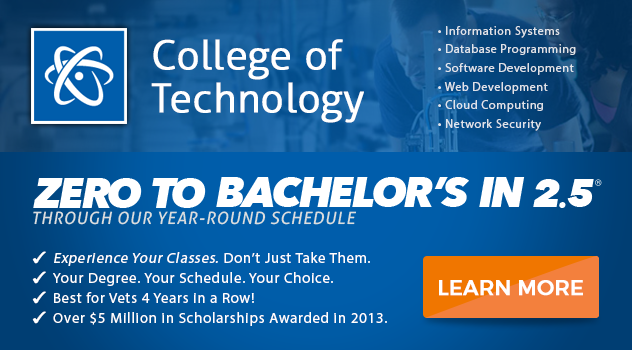
DISCLAIMER – ECPI University makes no claim, warranty, or guarantee as to actual employability or earning potential to current, past or future students or graduates of any educational program we offer. The ECPI University website is published for informational purposes only. Every effort is made to ensure the accuracy of information contained on the ECPI.edu domain; however, no warranty of accuracy is made. No contractual rights, either expressed or implied, are created by its content.
For more information about ECPI University or any of our programs click here: http://www.ecpi.edu/ or http://ow.ly/Ca1ya .
View the discussion thread.
- Current Students
- Faculty / Staff
- Paying for College
- Alumni Services
- Maine Transfer Guarantee
- Program Finder
- Affordable, Flexible, Accessible
- Distance Education
- All Online Courses & Degrees
- Bachelor’s Degrees Online
- Master’s Degrees Online
- Start Dates
- Admissions, Costs & Aid
- Partnerships
- Faculty and Contacts
- Academic and Career Support
- Student Testimonials
- Distance Education Advantage
- Distance Education Blogs
- In-Person Education
- Sustainable Ventures
- Careers & Outcomes
- Strategic Plan
- Project Evolution
- Project Stratus
- About Unity
- Office of the President
- Our Evolution
- Sustainable Achievements & Initiatives
- Reinventing College
- Extended Reality (XR)
- Commencement
- Give to Unity Environmental University
- Institutional Communications
- Unity Environmental University News
- Unity Store

Home / News / Why Is Education Important? The Power Of An Educated Society

Why Is Education Important? The Power Of An Educated Society
Looking for an answer to the question of why is education important? We address this query with a focus on how education can transform society through the way we interact with our environment.
Whether you are a student, a parent, or someone who values educational attainment, you may be wondering how education can provide quality life to a society beyond the obvious answer of acquiring knowledge and economic growth. Continue reading as we discuss the importance of education not just for individuals but for society as a whole.

Harness the power of education to build a more sustainable modern society with a degree from Unity Environmental University .

How Education Is Power: The Importance Of Education In Society
Why is education so important? Nelson Mandela famously said, “Education is the most powerful weapon which you can use to change the world.” An educated society is better equipped to tackle the challenges that face modern America, including:
- Climate change
- Social justice
- Economic inequality
Education is not just about learning to read and do math operations. Of course, gaining knowledge and practical skills is part of it, but education is also about values and critical thinking. It’s about finding our place in society in a meaningful way.
Environmental Stewardship
A study from 2022 found that people who belong to an environmental stewardship organization, such as the Leave No Trace Center for Outdoor Ethics, are likely to have a higher education level than those who do not. This suggests that quality education can foster a sense of responsibility towards the environment.
With the effects of climate change becoming increasingly alarming, this particular importance of education is vital to the health, safety, and longevity of our society. Higher learning institutions can further encourage environmental stewardship by adopting a framework of sustainability science .

The Economic Benefits Of Education
Higher education can lead to better job opportunities and higher income. On average, a person with a bachelor’s degree will make $765,000 more in their lifetime than someone with no degree. Even with the rising costs of tuition, investment in higher education pays off in the long run. In 2020, the return on investment (ROI) for a college degree was estimated to be 13.5% to 35.9% .
Green jobs like environmental science technicians and solar panel installers have high demand projections for the next decade. Therefore, degrees that will prepare you for one of these careers will likely yield a high ROI. And, many of these jobs only require an associate’s degree or certificate , which means lower overall education costs.
Unity helps students maximize their ROI with real-world experience in the field as an integral part of every degree program.
10 Reasons Why School Is Important
Education is not just an individual pursuit but also a societal one. In compiling these reasons, we focused on the question, “How does education benefit society?” Overall, higher education has the power to transform:
- Individuals’ sense of self
- Interpersonal relationships
- Social communities
- Professional communities
Cognitive Development
Neuroscience research has proven that the brain is a muscle that can retain its neuroplasticity throughout life. However, like other muscles, it must receive continual exercise to remain strong. Higher education allows people of any age to improve their higher-level cognitive abilities like problem-solving and decision-making. This can make many parts of life feel more manageable and help society run smoothly.
Emotional Intelligence
Emotional intelligence is key to workplace success. Studies show that people with emotional intelligence exhibit more:
- Self-awareness
- Willingness to try new things
- Innovative thinking
- Active listening
- Collaboration skills
- Problem-solving abilities
By attending higher education institutions that value these soft skills, students can improve their emotional intelligence as part of their career development in college.
Technological Literacy
Many careers in today’s job market use advanced technology. To prepare for these jobs, young people likely won’t have access to these technologies to practice on their own. That’s part of why so many STEM career paths require degrees. It’s essential to gain technical knowledge and skills through a certified program to safely use certain technologies. And, educated scientists are more likely to make new technological discoveries .
Cultural Awareness
Education exposes individuals to different cultures and perspectives. Being around people who are different has the powerful ability to foster acceptance. Acceptance benefits society as a whole. It increases innovation and empathy.
College also gives students an opportunity to practice feeling comfortable in situations where there are people of different races, genders, sexualities, and abilities. Students can gain an understanding of how to act respectfully among different types of people, which is an important skill for the workplace. This will only become more vital as our world continues to become more globalized.
Ethical and Moral Development
Another reason why school is important is that it promotes ethical and moral development. Many schools require students to take an ethics course in their general education curriculum. However, schools can also encourage character development throughout their programs by using effective pedagogical strategies including:
- Class debates and discussions
- Historical case studies
- Group projects
Unity’s distance learning programs include an ethical decision-making class in our core curriculum.

Ready To Learn More About Unity Environmental University?
Communication Skills
Effective written and verbal communication skills are key for personal and professional success. Higher education programs usually include at least one communication course in their general education requirements. Often the focus in these classes is on writing skills, but students can also use college as an opportunity to hone their presentation and public speaking skills. Courses such as Multimedia Communication for Environmental Professionals provide many opportunities for this.
Civic Engagement
According to a Gallup survey , people with higher education degrees are:
- More likely to participate in civic activities such as voting and volunteering
- Less likely to commit crimes
- More likely to get involved in their local communities
All these individual acts add up to make a big difference in society. An educated electorate is less likely to be swayed by unethical politicians and, instead, make choices that benefit themselves and their community. Because they are more involved, they are also more likely to hold elected officials accountable.
Financial Stability
The right degree can significantly expand your career opportunities and improve your long-term earning potential. Not all degrees provide the same level of financial stability, so it’s important to research expected salary offers after graduation and job demand outlook predictions for your desired field. Consider the return on investment for a degree from an affordable private school such as Unity Environmental University .
Environmental Awareness
We have already discussed why education is important for environmental stewardship. Education can also lead to better environmental practices in the business world. By building empathy through character education and ethics courses, institutions can train future business leaders to emphasize human rights and sustainability over profits. All types and sizes of businesses can incorporate sustainable practices, but awareness of the issues and solutions is the first step.
Lifelong Learning
The reasons why education is important discussed so far focus on institutional education. However, education can happen anywhere. Attending a university that values all kinds of learning will set students up with the foundation to become lifelong learners. Research demonstrates that lifelong learners tend to be healthier and more fulfilled throughout their lives. When societies emphasize the importance of education, they can boost their overall prosperity.

The Role Of Unity Environmental University In Society
Environmentally conscious education is extremely valuable and should be accessible to all. Unity Environmental University offers tuition prices that are comparable to public universities, and financial aid is available to those who qualify. Courses last five weeks so that students can focus on only one class at a time. This ensures all learners are set up for academic success.
Unity believes in supporting students holistically to maximize the power of education. This includes mental health services, experiential learning opportunities , and job placement assistance . Students in our hybrid programs can take classes at several field stations throughout Maine and enjoy the beautiful nature surrounding the campus for outdoor recreation.
Sustainable Initiatives
Some highlights from Unity Environmental University’s many sustainable initiatives:
- All programs include at least one sustainability learning outcome
- All research courses are focused on sustainability research
- Reduced building energy use by 25% across campus
- 100% of food waste is recycled into energy
- Campus features a net-zero LEED Platinum-certified classroom/office building
While many schools value sustainability, Unity stands out because everything we do is about sustainability. We also recognize our responsibility to model how a sustainable business can operate in a manner that’s fiscally viable and socially responsible.
Make An Impact At Unity Environmental University
While the phrase ‘education is power’ may sound cliche, it is also resoundingly true. Higher education has the power to transform individuals and societies. Unity Environmental University understands its power to make a positive impact on the world. That’s why we were the first university to divest from fossil fuels.
This year, we celebrated our largest incoming class ever , showing that students want an education system that aligns with their values. In addition to our commitment to sustainability, we offer flexibility to students with start dates all year round for our online degree programs .

Start Your Journey

Looking for Answers
Get More Info
© Unity Environmental University 2024. “America’s Environmental University.™”
Privacy Overview
- Get involved
The transformative power of education in the fight against poverty
October 16, 2023.
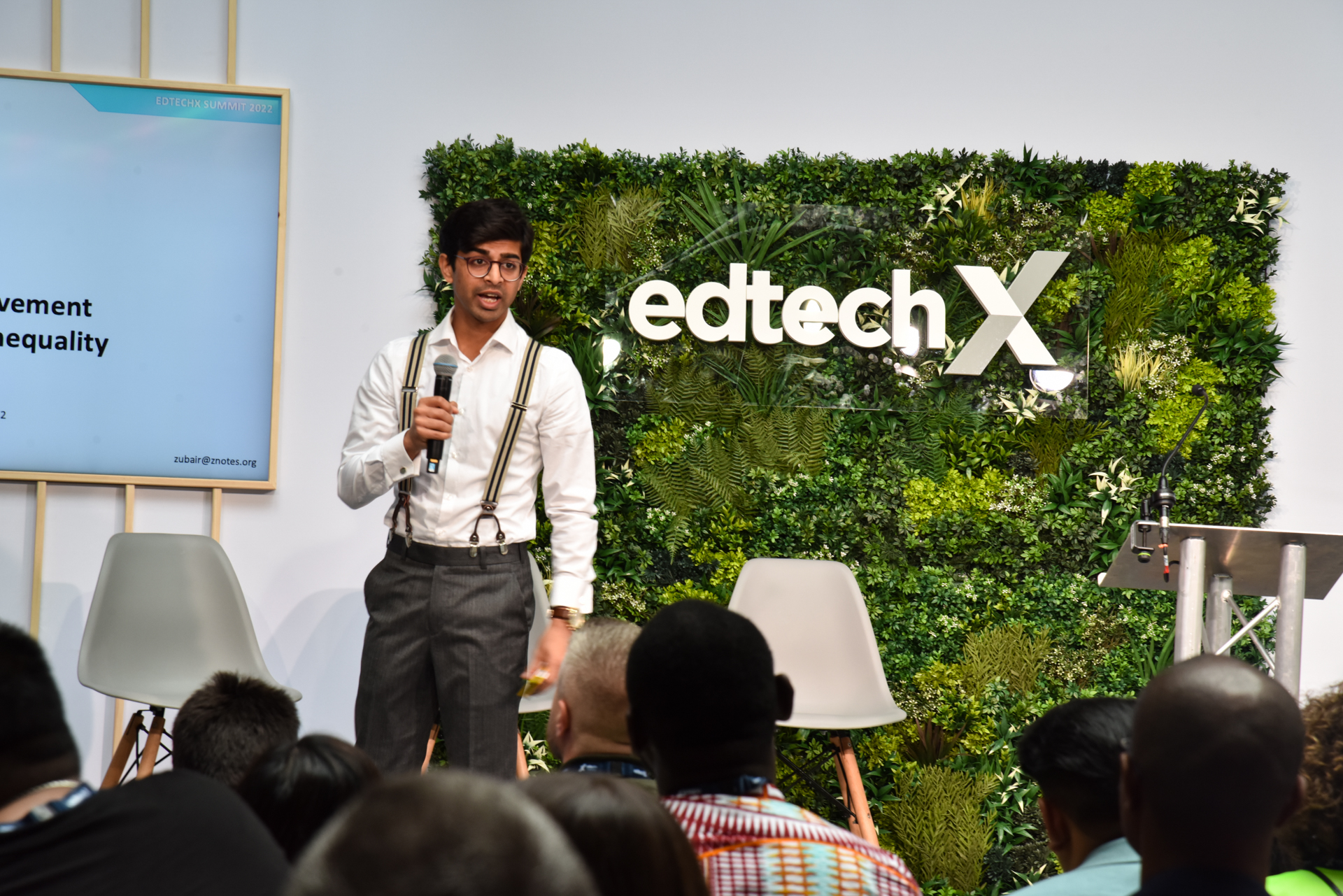
Zubair Junjunia, a Generation17 young leader and the Founder of ZNotes, presents at EdTechX.

Zubair Junjunia
Generation17 Young Leader and founder of ZNotes
Time and again, research has proven the incredible power of education to break poverty cycles and economically empower individuals from the most marginalized communities with dignified work and upward social mobility.
Research at UNESCO has shown that world poverty would be more than halved if all adults completed secondary school. And if all students in low-income countries had just basic reading skills, almost 171 million people could escape extreme poverty.
With such irrefutable evidence, how do we continue to see education underfunded globally? Funding for education as a share of national income has not changed significantly over the last decade for any developing country. And to exacerbate that, the COVID-19 shock pushed the level of learning poverty to an estimated 70 percent .
I have devoted the past decade of my life to fighting educational inequality, a journey that began during my school years. This commitment led to the creation of ZNotes , an educational platform developed for students, by students. ZNotes was born out of the problem I witnessed first-hand; the inequities in end-of-school examination, which significantly influence access to higher education and career opportunities. It is designed as a platform where students can share their notes and access top-quality educational materials without any limitations. ZNotes fosters collaborative learning through student-created content within a global community and levels the academic playing field with a student-empowered and technology-enabled approach to content creation and peer learning.
Although I started ZNotes as a solo project, today, it has touched the lives of over 4.5 million students worldwide, receiving an impressive 32 million hits from students across more than 190 countries, especially serving students from emerging economies. We’re proud to say that today, more than 90 percent of students find ZNotes resources useful and feel more confident entering exams , regardless of their socio-economic background. These globally recognized qualifications empower our learners to access tertiary education and enter the world of work.

Sixteen-year-old Zubair set up a blog to share the resources he created for his IGCSE exams. Through word of mouth, his revision notes were discovered by students all over the world and ZNotes was born.
In rapidly changing job market, young people must cultivate resilience and adaptability. World Economic Forum highlights the importance of future skills, encompassing technical, cognitive, and interpersonal abilities. Unfortunately, many educational systems, especially in under-resourced regions, fall short in equipping youth with these vital skills.
To address this challenge, I see innovative technology as a crucial tool both within and beyond traditional school systems. As the digital divide narrows and access to devices and internet connectivity becomes more affordable, delivering quality education and personalized support is increasingly achievable through technology. At ZNotes, we are reshaping the role of students, transforming them from passive consumers to active creators and proponents of education. Empowering youth through a community-driven approach, students engage in peer learning and generate quality resources on an online platform.
Participation in a global learning community enhances young people's communication and collaboration skills. ZNotes fosters a sense of global citizenship, enabling learners to communicate with a diverse range of individuals across race, gender, and religion. Such spaces also result in redistributing social capital as students share advice for future university, internship and career pathways.
“Studying for 14 IGCSE subjects wasn't easy, but ZNotes helped me provide excellent and relevant revision material for all of them. I ended up with 7 A* 7 A, and ZNotes played a huge role. I am off to Cornell University this fall now. A big thank you to the ZNotes team!"
Alongside ensuring our beneficiaries are equipped with the resources and support they need to be at a level playing field for such high stakes exams, we also consider the skills that will set them up for success in life beyond academics. Especially for the hundreds of young people who join our internship and contribution programs , they become part of a global social impact startup and develop both academic skills and also employability skills. After engaging with our internship programs, 77% of interns reported improved candidacy for new jobs and internships.
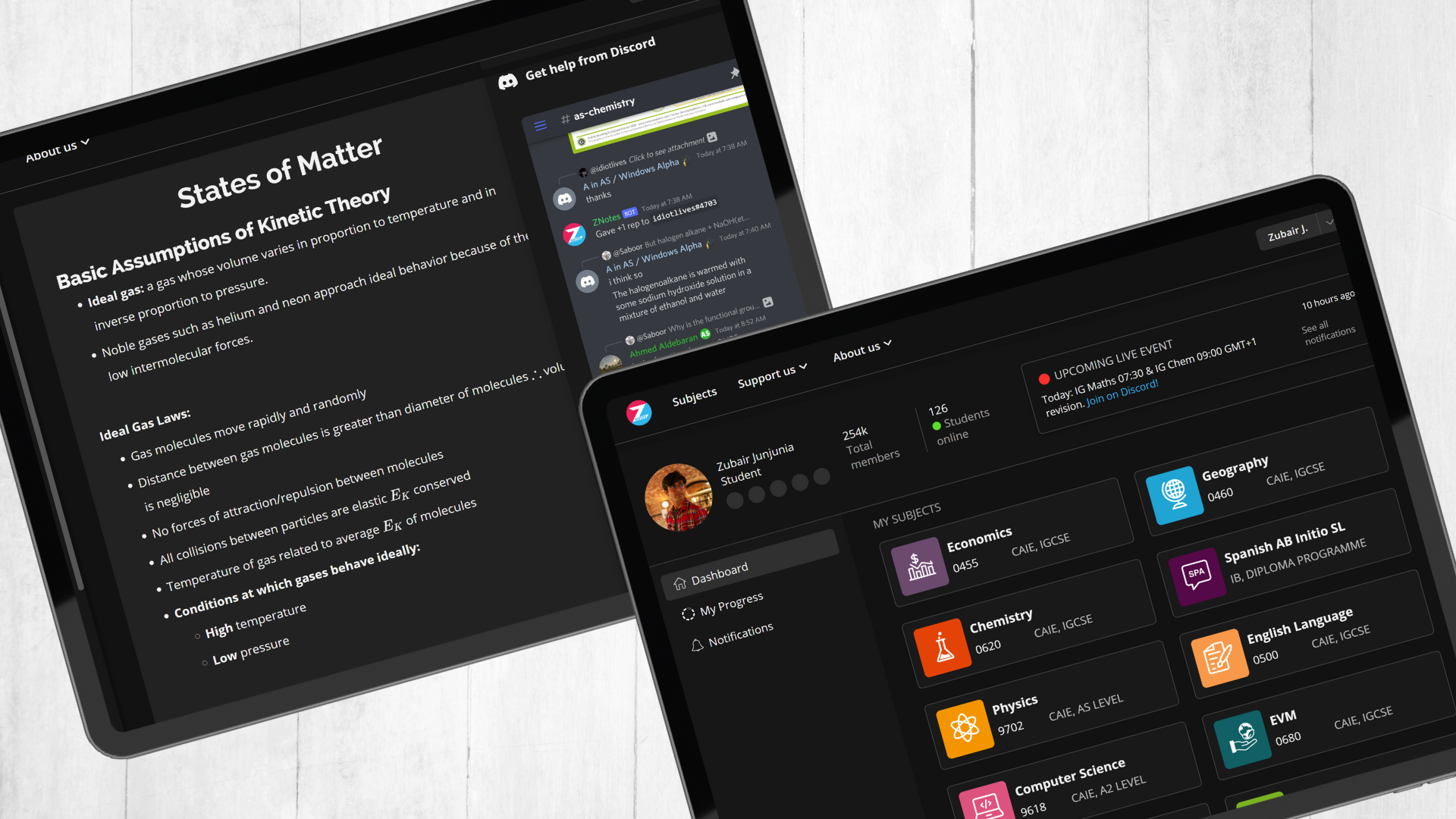
ZNotes addresses the uneven playing field of standardized testing with a student-empowered and technology-enabled approach for content creation and peer learning.
A few years ago, Jess joined our team as a Social Impact Analyst intern having just completed her university degree while she continued to search for a full-time role. She was able to apply her data analytics skills from a theoretical degree into a real-world scenario and was empowered to play an instrumental role in understanding and developing a Theory of Change model for ZNotes. In just 6 months, she had been able to develop the skills and gain experiences that strengthened her profile. At the end of internship, she was offered a full-time role at a major news and media agency that she is continuing to grow in!
Jess’s example applies to almost every one of our interns . As another one of them, Alexa, said “ZNotes offers the rare and wonderful opportunity to be at the center of meaningful change”.
Being part of an organization making a significant impact is profoundly inspiring and empowering for young people, and assuming high-responsibility roles within such organizations accelerates their skills development and sets them apart in the eyes of prospective employers.
On the International Day for the Eradication of Poverty, it is a critical moment to reflect and enact on the opportunity that we have to achieving two key SDGs, Goal 1 and 4, by effectively funding and enabling access to quality education globally.
When it Comes to Education, the Federal Government is in Charge of ... Um, What?
- Posted August 29, 2017
- By Brendan Pelsue

Judging by her Senate confirmation process, Secretary of Education Betsy DeVos is one of the most controversial members of President Donald Trump’s cabinet. She was the only nominee to receive two “no” votes from members of her own party, Senators Susan Collins of Maine and Lisa Murkowski of Alaska. On the eve of her confirmation vote, Democrats staged an all-night vigil in which they denounced her from the Senate floor. Following a 50–50 vote, Vice President Mike Pence was summoned in his capacity as president of the Senate to break the tie for DeVos — a first in the Senate’s 228-year history of giving “advice and consent” to presidential cabinet nominees.
Now that DeVos is several months into her tenure as the 11th secretary of education, both her supporters and detractors are paying close attention to the policies she is beginning to implement and how they will change the nation’s public schools. Even for veteran education watchers, however, this is difficult, not only because the Trump administration’s budget and policy proposals are more skeletal than those put forward by previous administrations, but because the Department of Education does not directly oversee the nation’s 100,000 public schools. States have some oversight, but individual municipalities, are, in most cases, the legal entities responsible for running schools and for providing the large majority of funding through local tax dollars.
Still, the federal government uses a complex system of funding mechanisms, policy directives, and the soft but considerable power of the presidential bully pulpit to shape what, how, and where students learn. Anyone hoping to understand the impact of DeVos’ tenure as secretary of education first needs to grasp some core basics: what the federal government controls, how it controls it, and how that balance does (and doesn’t) change from administration to administration.
This policy landscape is the subject of an Ed School course, A-129, The Federal Government and Schools, taught by Lecturer Laura Schifter , Ed.M.'07, Ed.D.'14,, a former senior adviser to Congressman George Miller (D-CA). Schifter has noticed that even for students who have worked in public schools, understanding the federal government’s current role in education can be complicated.
“Students frequently need a refresher on things like understanding the nature of the relationship between the federal government and the states, and what federalism is,” she says. With that in mind, the course begins with a civics review, especially the complicated politics of federalism, then moves on to a history lesson in federal education legislation since the Elementary and Secondary Education Act of 1965, and finally to an overview of the actual policy mechanisms through which the federal government enforces and implements the law. Throughout, students “read statutes, they read regulations, they read court decisions,” Schifter says — activities she believes are essential since there is no better way for educators to understand the law than to consult it themselves.
The civics and history lessons required to understand the federal government’s role in education are of course deeply intertwined and begin, as with so many things American, with the Constitution. That document makes no mention of education. It does state in the 10th Amendment that “the powers not delegated to the United States by the Constitution … are reserved to the States respectively.” This might seem to preclude any federal oversight of education, except that the 14th Amendment requires all states to provide “any person within its jurisdiction the equal protection of the laws.”
At least since the Supreme Court’s Brown v. Board of Education decision in 1954, this has been interpreted to give the federal government the power to intervene in cases of legally sanctioned discrimination, like the segregation of public schools across the country; to mandate equal access to education for students with disabilities; and, according to some arguments, to correct for persistently unequal access to resources across states and districts of different income levels. According to Associate Professor Martin West , the government’s historical and current role in education reflects the conflicts inherent in these two central tenets of the nation’s charter.
Before 1965, the 10th Amendment seemed to prevail over the 14th, and federal involvement in K–12 education was minimal. Beginning with Horace Mann in Massachusetts, in the 1830s, states implemented reforms aimed at establishing a free, nonsectarian education system, but most national legislation was aimed at higher education. For example, the 1862 Morrill Act used proceeds from the sale of public lands to establish “land-grant” colleges focused on agriculture and engineering. (Many public universities, like Michigan State and historically black colleges like Tuskegee University, are land-grant institutions.)
And then, in the late 1860s, the first federal Department of Education under President Andrew Johnson was established to track education statistics. It was quickly demoted to “Office” and was not part of the president’s cabinet. It wasn’t until the mid-1960s that the federal government took a more robust role in K–12 education.
The impetus for the change was twofold. The Supreme Court’s 1954 Brown v. Board of Education decision, which mandated the desegregation of public schools, gave the executive branch a legal precedent for enforcing equal access to education. At the same time, the launch of the Soviet satellite Sputnik I (and the technological brinksmanship of the Cold War more generally) created an anxiety that the nation’s schools were falling behind.
Those threads came together in the Elementary and Secondary Education Act (ESEA) of 1965, a bill designed in part by Francis Keppel , then the commissioner of education (the pre-cabinet-level equivalent of secretary of education) and a transformative dean at the Ed School. The bill was a key part of Lyndon Johnson’s War on Poverty and has set the basic terms of the federal government’s involvement in education ever since.
Rather than mandating direct federal oversight of schools — telling states what to do — ESEA offered states funding for education programs on a conditional basis. In other words, states could receive federal funding provided they met the requirements outlined in certain sections, or titles, of the act.
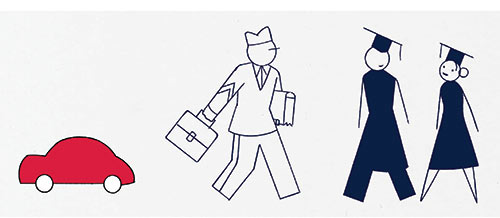
Every major education initiative since 1965 has been about recalibrating the balance first struck by esea. Until 1980, the program was reauthorized every three years, each time with more specific guidelines about how federal funds were to be used (Title I money has to add to rather than replace locally provided education funding, for example). In 1975, the Education for All Handicapped Children Act (now IDEA) ensured that students with disabilities are provided a free appropriate public education to meet their needs. This initial flurry of expansion culminated in 1979, under President Jimmy Carter, with the establishment of the federal Department of Education as a separate, cabinet-level government agency that would coordinate what West calls the “alphabet soup” of the federal government’s various initiatives and requirements.
The Reagan administration briefly rolled back many ESEA provisions, but following the release of the 1983 A Nation at Risk report, which pointed out persistent inequalities in the education system and made unfavorable comparisons between U.S. students and those in other nations, old requirements were restored and new ones added.
The 2001 No Child Left Behind Act (NCLB) marked a new level of federal oversight by requiring states to set more rigorous student evaluation standards and, through testing, demonstrate “adequate yearly progress” in how those standards were met. Flaws in the law quickly surfaced. Standards did not take into account the differences between student populations, and so, according to West, the Department of Education often ended up “evaluating schools as much on the students they serve as opposed to their effectiveness in serving them.”
When the Obama administration came to office, it faced a legislative logjam on education. NCLB expired in 2007, but there was no Congressional consensus about the terms of its reauthorization. The administration responded by issuing waivers to states that did not meet nclb standards, provided they adopted other policies the administration favored, like the Common Core standards. At the same time, the Race to the Top program offered competitive grants that awarded points to states based on their implementation of policies like performance-based evaluations. The two programs were seen by many conservatives as executive overreach, and when ESEA was reauthorized in 2015 as the Every Student Succeeds Act (ESSA), NCLB standardized testing requirements were kept, but the evaluation and accountability systems meant to respond to the results of those tests became the responsibility of individual states. When DeVos was testifying before the Senate in January 2017, the federal government still had a greater hand in public education than it did at any point before No Child Left Behind, but it had also recently experienced the greatest rollback in its oversight since an era of almost continual expansion that began in 1965.
Back in Schifter’s class, students grapple with simulated versions of the actual dilemma now facing the Trump administration: how to design and implement policy. For Schifter’s students, that means choosing between two final projects: a mock Congressional markup on an education-related bill or a mock grant proposal similar to Race to the Top. For Trump, it means navigating how education policy is shaped by all three branches of government.
Congress has the ability to write statute and distribute funds. If, for example, it releases funds as formula grants, which are distributed to all states on the same basis, it can ensure universal adoption of programs like Title I. Competitive grants like Race to the Top arguably make policy implementation more efficient: the executive branch can regulate, clarify, and be selective about its enforcement of the law. And judicial rulings can redefine what qualifies as implementation of policy, as the Supreme Court did in its 2017 Endrew F. v. Douglas County School Dist. RE-1 ruling, a unanimous decision that interpreted idea as requiring that a disabled student’s “educational program must be appropriately ambitious in light of his circumstances.”
It seems the Department of Education’s approach under DeVos is still taking shape. Some of its actions have been swift and decisive. In February, the Departments of Justice and Education jointly announced they were rescinding the Obama-era guidance protecting transgender students’ right to use a bathroom corresponding with their gender identity.
In other areas, however, the department’s positions have been vague. On Inauguration Day, the administration ordered a freeze on state evaluation and accountability plans for schools, which under essa must be federally approved. In a February 10 letter to chief state school officers, however, DeVos said states should proceed with their proposals. If the department is lenient in its evaluation of these plans, it would amount to a de facto rollback in federal oversight because the Department of Education would be choosing not to exercise its powers to the full extent permitted by law.

The administration’s proposed budget, released in May under the title “A New Foundation for American Greatness,” calls for $500 million dollars in new charter school funding — a 50 percent increase over current levels, but less than the $759 million authorized over the first two years of the George W. Bush administration. The budget also allots an additional $1 billion in “portable” Title I funding, meaning the money would follow students who opt to attend charter or magnet schools (currently it stays in their home districts). Under ESSA, however, much of what was once overseen by the Department of Education has now reverted to the states.
“Ironically, we will see an administration that will be reluctant to dictate specific policies,” says Professor Paul Reville , the Massachusetts Secretary of Education under former Governor Deval Patrick. This doesn’t mean, of course, that the Department of Education and the administration are unable to exert influence, but it appears they are planning to do so through cutbacks rather than new initiatives. Trump’s budget proposes a 13.5 percent cut in the Education Department’s 2018 budget, including a $2.3 billion cut that would eliminate Supporting Effective Instruction States Grants, which fund teacher training and development.
And cutbacks in other areas could also affect students, since not all federal funding for schools comes from the Department of Education. For example, money for the Healthy Hunger-Free Kids Act, whose school lunch nutritional guidelines were recently loosened by an executive order, comes through the Department of Agriculture. Public school employees like occupational and physical therapists bill much of their work through Medicaid, which also provides dental, vision, hearing, and mental health services. Programs like this are at risk in part because the administration’s proposed budget cuts Medicaid by $800 billion dollars.
Beyond the budget specifics, there is also the power of the presidential bully pulpit. Reville cites evidence that the administration’s rhetoric on charter schools and vouchers has already put conservative state governments “on the move, emboldened by the new federal stance on choice.”
The administration’s budget is only, however, a wish list. The actual power to determine federal expenditures rests in the House and the Senate, and even in years of less drastic proposals, legislators often pass a federal budget that looks quite different from the one suggested by the president. Trump’s budget has received pushback, and for some education-minded conservatives, the administration’s advocacy on their behalf is unwelcome. Frederick Hess , Ed.M.'90, director of education policy studies at the American Enterprise Institute, believes in school choice — but worries what will happen if Trump pushes for it.
“The last thing we want,” Hess says of school choice, “is for the least popular, most maladroit leader in memory to become the advocate for an otherwise popular idea.”
Not everyone agrees with Hess’ assessment of the president, of course, but his concerns do illustrate a basic idea about policymaking that Schifter has borrowed from political scientist John Kingdon and tries to pass on to her students. For any given idea to become a legal reality, the theory goes, policy proposals are only one part of a triangle. Politicians must also effectively prove the existence of the problem, and they must do so at a moment in history when the fix they are proposing is politically possible. For Lyndon Johnson in 1965, the problem was that the nation’s schools were not serving all students equally. The solution was for the federal government to distribute funds in a way that would correct the balance. The political moment was when both Cold War anxieties and newly robust understandings of the 14th Amendment made the changes possible. The result was a new relationship between the federal government and the states on education policy.
Although the Trump administration has outlined some first principles, both its ability to make its case to the American people and the possibilities of this unprecedented political moment remain to be seen.
Brendan Pelsue is a writer whose last piece in Ed. looked at gap year programs .
Illustrations by Simone Massoni

Ed. Magazine
The magazine of the Harvard Graduate School of Education
Related Articles

Equitable Recovery: Addressing Learning Challenges after COVID
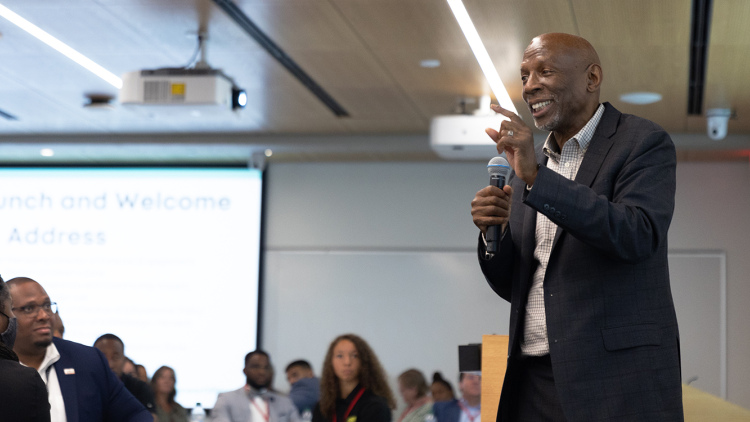
Neighborhoods Matter
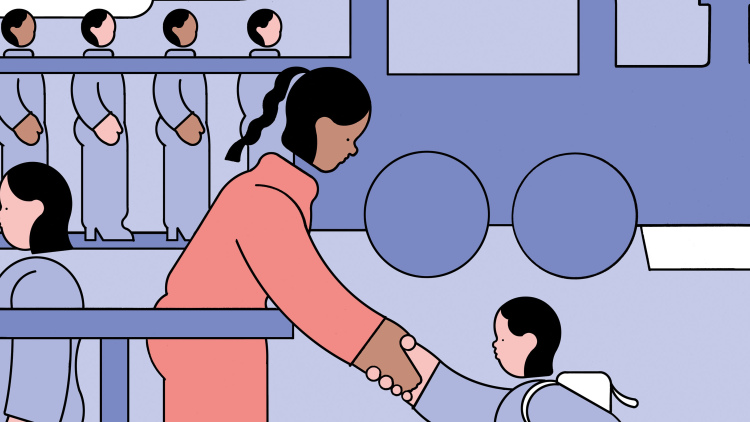
Road to COVID Recovery

IMAGES
VIDEO
COMMENTS
These five inspiring stories highlight the transformative power of education. Whether it's overcoming adversity, challenging societal norms, or driving innovation, education has the potential to change lives and shape the future. These individuals serve as living proof that pursuing knowledge is a powerful force that can lead to remarkable ...
The quote by Nelson Mandela, "Education is the most powerful weapon which you can use to change the world," holds immense significance in highlighting the transformative power of knowledge. Mandela recognizes that education holds the key to societal progress, as it empowers individuals to challenge existing norms, question their surroundings ...
The transformative power of education is best illustrated through stories of real-life impact. We share tales of individuals who defied the odds, accessed education against all challenges, and emerged as change-makers. Education has uplifted lives from impoverished communities to war-torn regions, breaking the cycle of poverty and despair.
Education is the most empowering force in the world. It creates knowledge, builds confidence, and breaks down barriers to opportunity. For children, it is their key to open the door to a better ...
9. "The only person who is educated is the one who has learned how to learn and change." - Carl Rogers. 10. "Education is the movement from darkness to light." - Allan Bloom. 11. "The whole purpose of education is to turn mirrors into windows." - Sydney J. Harris. 12. "Education is learning what you didn't even know you didn't know."
Nelson Mandela famously said, "Education is the most powerful weapon which you can use to change the world.". An educated society is better equipped to tackle the challenges that face modern America, including: Climate change. Social justice. Economic inequality.
"We believe that education has the power to change societies, enables people to flourish, support their communities and engage with their institutions," says Maddalaine Ansell. The British Council works to ensure inclusive access to quality education and training as well as professional teaching qualifications, and to promote lifelong ...
30 Years of Convention on the Rights of the Child. "My education, what I have learned, has lifted me when I was down," said Maya Ghazal, a high profile supporter for UNHCR, the UN Refugee Agency. "It has given me the strength to speak in front of people, to share my struggles in front of young teenagers and most importantly, it helps me ...
Time and again, research has proven the incredible power of education to break poverty cycles and economically empower individuals from the most marginalized communities with dignified work and upward social mobility. Research at UNESCO has shown that world poverty would be more than halved if all adults completed secondary school. And if all ...
Board of Education decision in 1954, this has been interpreted to give the federal government the power to intervene in cases of legally sanctioned discrimination, like the segregation of public schools across the country; to mandate equal access to education for students with disabilities; and, according to some arguments, to correct for ...